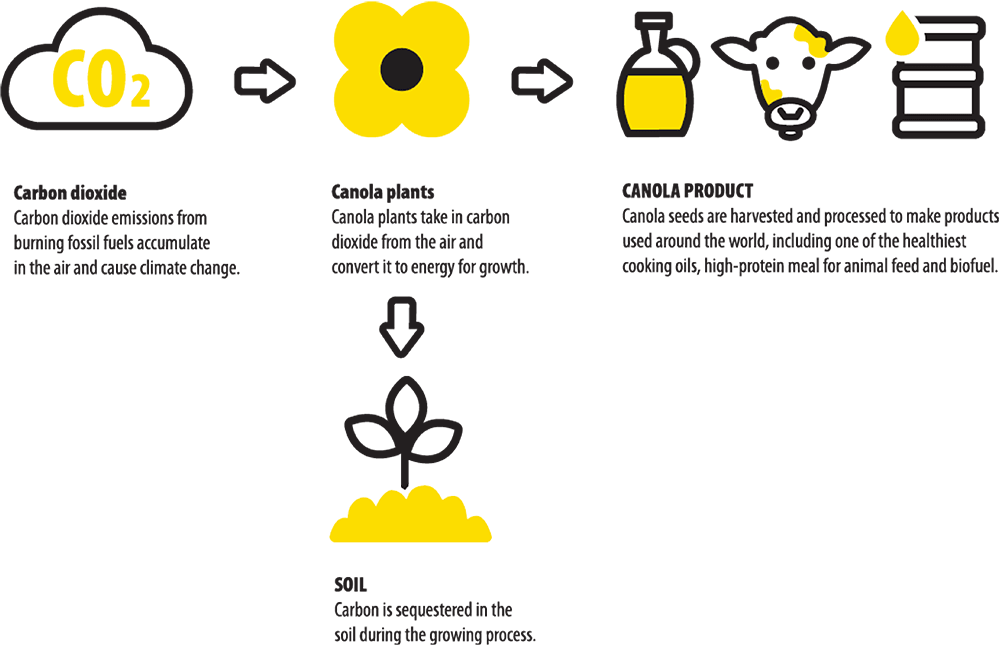Canola contributes to sustainable agriculture. It improves soil health, sequesters carbon, provides habitat for pollinators and adds to global nutrition.
- Healthy, affordable canola oil and protein contribute to global food security.
- Canola and no-till production systems sequester carbon, enhance biodiversity and produce more per acre than ever before.
- Canola contributes to soil health and water quality by enabling conservation tillage, which preserves topsoil and organic matter and stores carbon and nutrients in soil.
- Canola reduces greenhouse gases in the atmosphere by sequestering carbon.
- Conservation tillage significantly reduces farm fuel use each year.
- Modern genetic traits in canola, such as herbicide tolerance and disease resistance, as well as innovations in crop protection and nutrient management, enable farmers to produce more with less.
- Canola fields provide habitat for beneficial insects such as bees, butterflies, spiders, wasps and beetles. Farmer practices, such as crop rotation, field scouting and IPM, help protect these allies.
 Source: Canola Council of Canada
Source: Canola Council of Canada